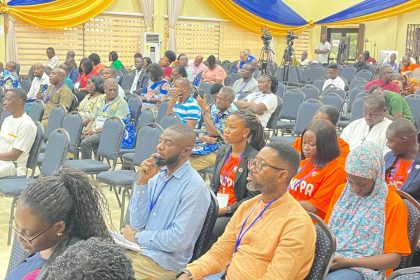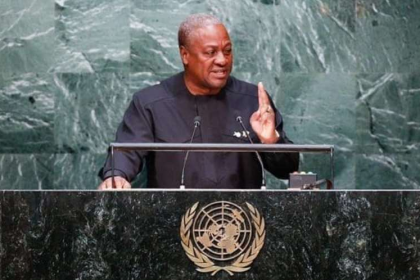FirstBank Ghana, in partnership with the University of Ghana, has commissioned a new Comfort Zone at the Legon campus, aimed at enhancing student learning, digital access, and overall campus experience.
The facility forms part of the University’s broader effort to expand student-centred spaces, while supporting academic work, innovation and wellbeing.
Speaking at the commissioning ceremony, Mr Olusegun Alebiosu, Group CEO of FirstBank Nigeria & Subsidiaries, said the Bank’s investment reflected its commitment to supporting education and nurturing Africa’s next generation of leaders.
He said banking must be rooted in society, noting that FirstBank sees its role as contributing to social development, particularly through investments that support young people.
“We believe the youth are the future of Africa. If you invest in their future, you are investing in Africa’s growth and in the future customers our bank will serve,” he said.
Mr Alebiosu said the Comfort Zone would contribute to learning, innovation, and technology development on campus, adding that similar facilities could create a multiplier effect across the country.
Touching on the financial sector, he identified digital risk particularly cyber and internet-related threats as the biggest challenge facing banks today.
However, he said digitisation also presented the greatest opportunity.
“The future of financial services is digital. Today, you can do your banking on your phone. Payments, transfers, everything is evolving. Banking will reach areas we never imagined,” he said.
Responding to a question about investment plans in Ghana, Mr Alebiosu said the Group remained fully committed to expanding its footprint.
He disclosed that FirstBank was poised to set up a digital and IT hub in Ghana, where software developed locally would be deployed across the FirstBank Group.
“For 2026, our plan is to expand and deepen our operations. You will be seeing more of us,” he said.
He also welcomed government’s push to expand production under the proposed 24-hour economy initiative, saying economic transformation must be driven by productivity and round-the-clock service delivery.
“Banking halls may not operate 24 hours, but our ATMs and digital platforms already do. That is the future,” he said.
Professor Gordon Awandare, Pro Vice-Chancellor for Academic and Student Affairs, said the Comfort Zone was designed as a modern learning space where students can study, work on assignments, hold group discussions, or relax between lectures.
The facility is equipped with high-speed internet, washrooms for non-resident students, and an upcoming snack bar to support student needs.
“The aim is to enhance the experience of our students on campus. The Vice-Chancellor has made this a priority to ensure students have a holistic experience, not just academically but in their wellbeing and professional development,” he said.
Prof. Awandare noted that the Comfort Zone is the third pillar of the University’s student experience programme, which also includes One Student, One Laptop Initiative, and classroom Modernisation Project.
He said six additional Comfort Zones were under construction, supported by various corporate partners.
“This is not just philanthropy. The University of Ghana is a strong brand. Partnering with us promotes your business and strengthens your brand,” he said.
Prof. Awandare commended FirstBank for its partnership and urged other companies to follow its example.
“Together, we can enhance the learning environment, promote innovation, and support the next generation of leaders,” he said.






